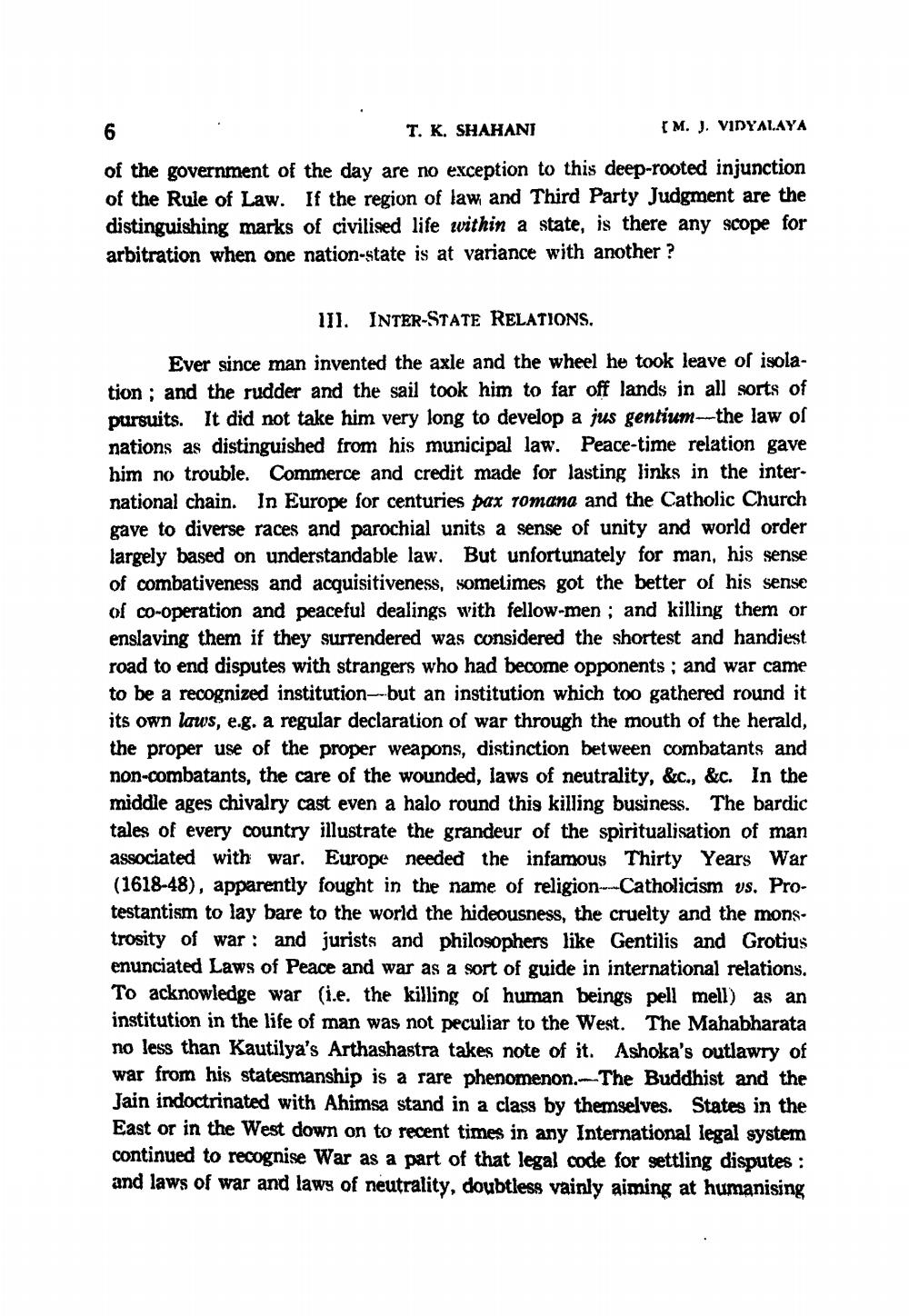________________
6
T. K. SHAHANI
[M. J. VIDYALAYA
of the government of the day are no exception to this deep-rooted injunction of the Rule of Law. If the region of law and Third Party Judgment are the distinguishing marks of civilised life within a state, is there any scope for arbitration when one nation-state is at variance with another?
III. INTER-STATE RELATIONS.
Ever since man invented the axle and the wheel he took leave of isolation; and the rudder and the sail took him to far off lands in all sorts of pursuits. It did not take him very long to develop a jus gentium-the law of nations as distinguished from his municipal law. Peace-time relation gave him no trouble. Commerce and credit made for lasting links in the international chain. In Europe for centuries pax romana and the Catholic Church gave to diverse races and parochial units a sense of unity and world order largely based on understandable law. But unfortunately for man, his sense of combativeness and acquisitiveness, sometimes got the better of his sense of co-operation and peaceful dealings with fellow-men; and killing them or enslaving them if they surrendered was considered the shortest and handiest road to end disputes with strangers who had become opponents; and war came to be a recognized institution--but an institution which too gathered round it its own laws, e.g. a regular declaration of war through the mouth of the herald, the proper use of the proper weapons, distinction between combatants and non-combatants, the care of the wounded, laws of neutrality, &c., &c. In the middle ages chivalry cast even a halo round this killing business. The bardic tales of every country illustrate the grandeur of the spiritualisation of man associated with war. Europe needed the infamous Thirty Years War (1618-48), apparently fought in the name of religion-Catholicism vs. Protestantism to lay bare to the world the hideousness, the cruelty and the monstrosity of war and jurists and philosophers like Gentilis and Grotius enunciated Laws of Peace and war as a sort of guide in international relations. To acknowledge war (i.e. the killing of human beings pell mell) as an institution in the life of man was not peculiar to the West. The Mahabharata no less than Kautilya's Arthashastra takes note of it. Ashoka's outlawry of war from his statesmanship is a rare phenomenon.-The Buddhist and the Jain indoctrinated with Ahimsa stand in a class by themselves. States in the East or in the West down on to recent times in any International legal system continued to recognise War as a part of that legal code for settling disputes: and laws of war and laws of neutrality, doubtless vainly aiming at humanising




